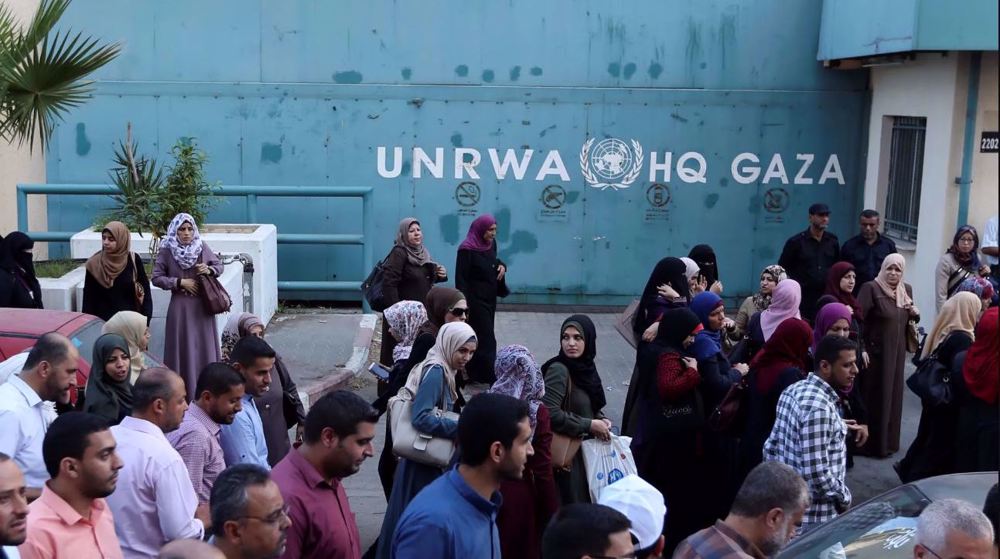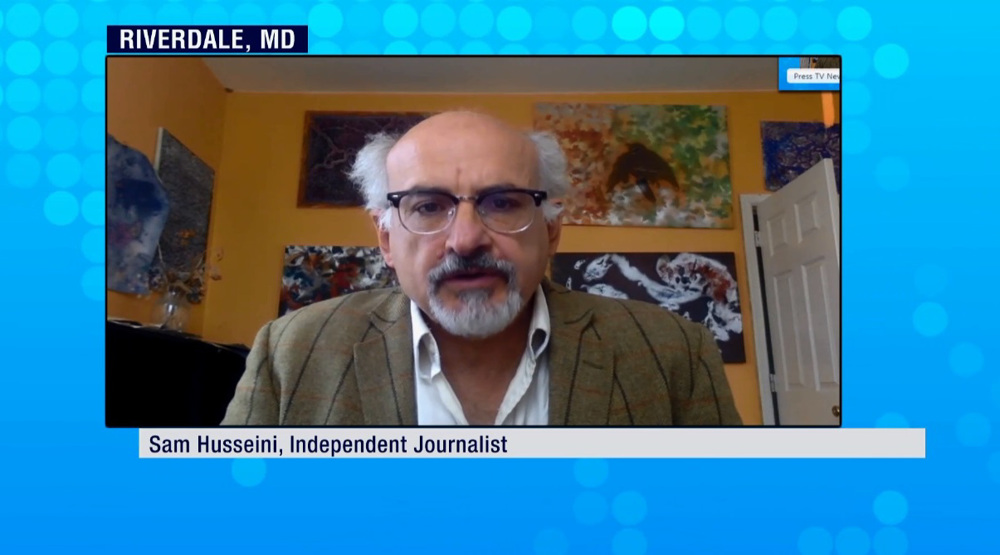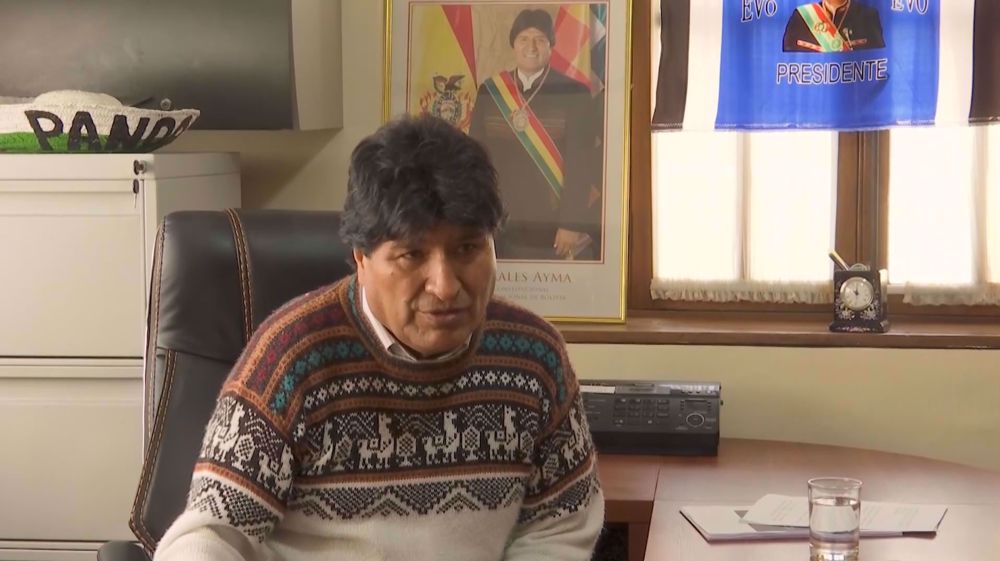JCPOA to fall apart if US continues acts of obstructionism: Analyst
Press TV has interviewed Kaveh Afrasiabi, an author and political scientist in Boston, to discuss the remarks made by Iranian Foreign Minister Mohammad Javad Zarif who says the US should take more objective steps to guarantee international banking transactions with Iran under last year’s nuclear agreement between Tehran and the P5+1 group of countries.
A rough transcription of the interview appears below.
Press TV: Despite the deal, it seems like the US is still putting pressure on Iran. Why do you think that is?
Afrasiabi: Well I think for a variety of both domestic and external reasons some of which have to do with US’s regional allies such as Saudi Arabia and Israel, we have just seen a new report by the UN’s Atomic Agency, IAEA, confirming once again that Iran has faithfully implemented its obligations under the nuclear deal which went into effect some five months ago and unfortunately the same cannot be said about the US and its deliberate acts of obstructionism vis-à-vis the nuclear deal which will fall apart if it continues that way, because the relative games of both sides have to be equal and unfortunately that is not the case today because of US’s efforts to basically scare away the potential investors and foreign traders with Iran, and we saw a recent report in the Wall Street Journal by the executives of Airbus that the mega deal with Iran is in jeopardy because of the US restrictions.
Press TV: Don’t you think in terms of the implementation of the JCPOA and referring to remarks being made public by various Europeans that is international banking officials, they say that the words spoken by US officials mainly by the State Department people and John Kerry himself are essentially meant for media consumption and they are merely, let’s say, political nicety, they are not that serious and if there were to be anything serious and substantive to come from the US administration, it should have come from the Treasury and the OFAC office. Do you agree with that?
Afrasiabi: Absolutely. Although I believe that US Secretary of State Kerry has been sincere in his efforts to convince the European banks but that is not sufficient and as you said there has to be regulations sent out to these various financial institutions in Europe and elsewhere to put their fears at ease and make sure that they have no fears of reprisals few months down the road because as you know there is an election coming up in the US and there is a lame duck president in the White House so the European bankers rightly don’t put too much weight on Kerry’s statement because he will be out of the office few months down the road and therefore these have to be written ... with thorough regulations and transparent guidelines that unfortunately are missing so far.
Press TV: In terms of those guidelines and repealing some of those regulations as previously issued by the OFAC and the US Treasury, what does it really take for them to be, let’s say, rescinded and revoked and for new set of regulations to be introduced?
Afrasiabi: Well this is a complex issue that deals with some of the legislations that have been passed in the US Congress in the past and are still in effect and the guidelines by the Treasury Department are in an evolving process, they are still lagged behind, there have been some modifications and changes that are ... below the bar of Iran’s natural expectations but there has to be consistent joint efforts by both the White House and the lawmakers in the Congress in order to shift the perception of Iran as a taboo by the traders and foreign banks and it takes a lot of considerable effort that simply the political will is not there right now.
Press TV: And in fairness, speaking of the European banks and their financial institutions, can it be said that they too are acting a little finicky about those regulations and OFAC, let’s say, statements or is this remark too cynical?
Afrasiabi: No I really do not think so because of the hefty penalties that were imposed on some of these banks by the US in the past, so naturally the banks are wary of the repetition of that scenario and want firm assurances from the US that has not been forthcoming and as a result we have only seen a few smaller banks taking the risks of such backlashes by engaging in small deals with Iran. That does not cut it for Iran that is looking to a new chapter of internationalization of its economy and open door policy and so forth in a so-called post- sanctions era and the post-sanctions era is still waiting to happen.
Press TV: On the Iranian side in your opinion, what are the avenues available to the Iranian officials in terms of incentivizing, pleasing and appeasing those European banking institutions to comfort and start doing business actually with Iran?
Afrasiabi: Well I think that the Iranian government particularly the Foreign Ministry has taken all the right steps and we have seen that through the recent trips of foreign minister to Poland and so forth and so there are some marginal developments that hopefully can be built on and add to Iran’s dynamic economic diplomacy but the Iranians also have the pressure tactic. If overtime the US continues with its obstructionism, then Iran may withhold implementing aspects of its obligations until the US does the quid pro quo and stops its tardiness and its cynical approach that has resulted in the major financial banks and so forth shying away from Iran.
Factbox: Is Meta facilitating Israel’s AI-aided bombing of Palestinians in Gaza
VIDEO | Panic grips Israel as regime fears arrest warrants from ICC
Iran: Police violence against student protests exposes US hypocrisy
Netanyahu stonewalling truce deal: Top Hamas official
Israel ‘too cowardly’ to respond to Iran’s retaliatory strikes: Yemen’s Ansarullah
Daesh attack kills 13 Syrian army troops, allied forces: Report
VIDEO | Press TV’s news headlines
VIDEO | Smoke clouds billow over Berlin after fire at factory with chemicals storage














 This makes it easy to access the Press TV website
This makes it easy to access the Press TV website